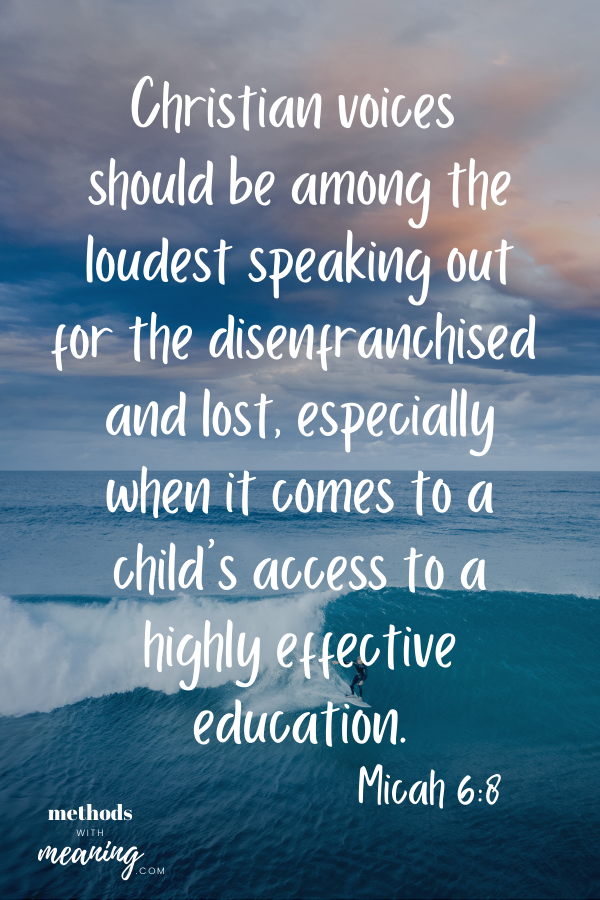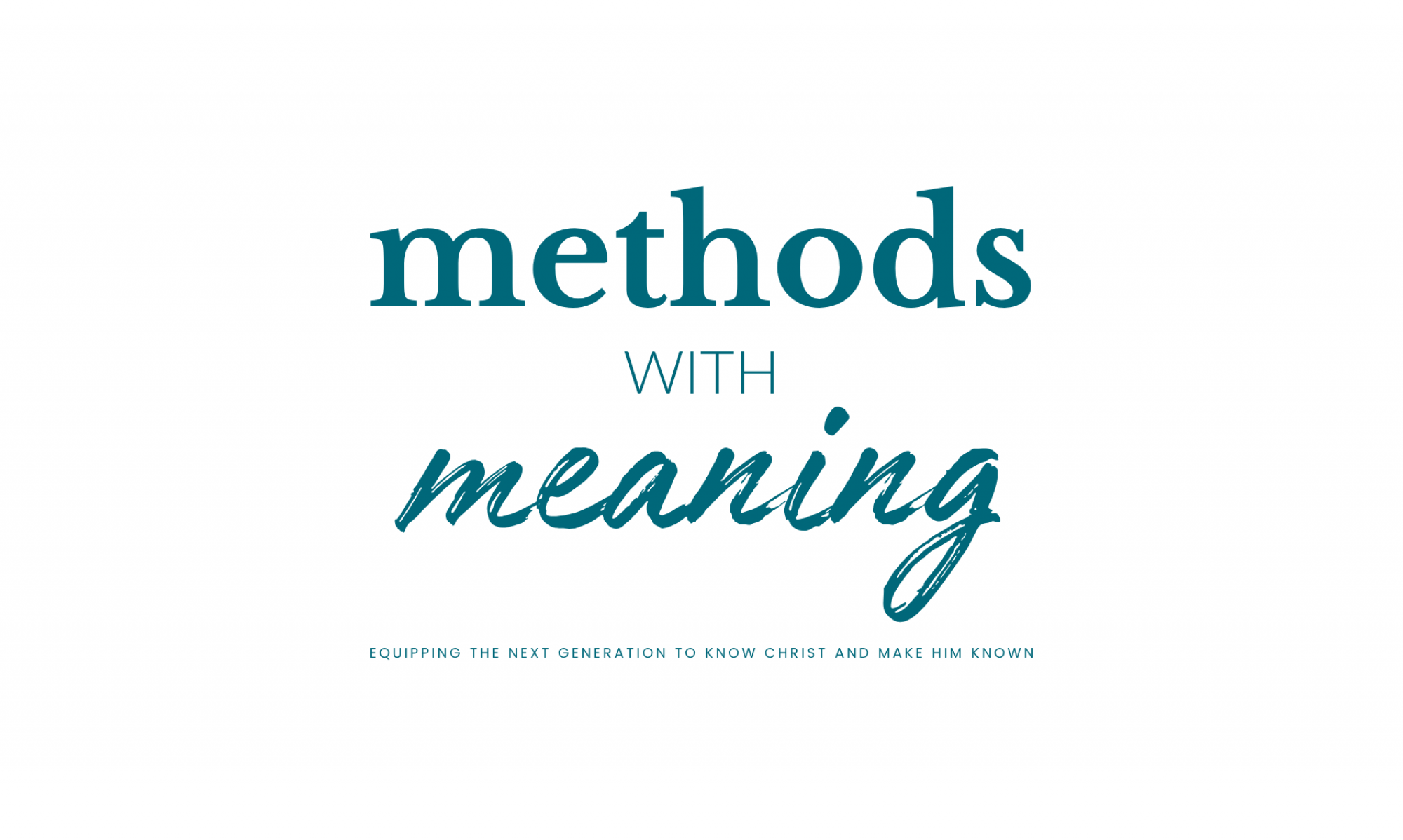How the Stories of Daniel and Esther Can Influence Christian Education
To these four young men God gave knowledge and understanding of all kinds of literature and learning. Daniel 1:17a
The inspiring stories of Daniel and Esther are familiar to most Christians, but I’m hoping you’ll revisit them with me in a new way to see how they might influence our thinking as Christian educators.
First, let’s look at their similarities. Although these two lived roughly 130 years apart, they had a lot in common. Both were Jews living in foreign territory. At roughly the same age of 15-20 years old, both were chosen by the authority to a place of prominence, though neither had a choice in the matter (Daniel 1:3; Esther 2:8). Daniel, a member of Jewish royalty, was chosen because he was healthy, handsome, intelligent, and well educated (Daniel 1:4). Esther was selected for her beauty to become a member of the king’s court with a chance at becoming his new wife (Esther 2:3, 8).
These young people immediately found favor with those in authority (Daniel 1:9, 19-20; Esther 2:9), and ultimately both were chosen to a special place of honor by the king. In Daniel’s case, we see a handsome young man of superior intellect and education, fit and strong, so it’s perhaps easier to see why he was so highly favored when looking through our 21st Century lens.
I’d like to suggest that we shouldn’t quickly dismiss Esther as just a pretty girl, though. First, we see that she was humble, accepting the advice of the king’s eunuch before meeting the king for the first time (Esther 2:9). The fact that this was mentioned seems to indicate that not all the young women behaved the same way.

Next we learn that out of all the beautiful women in the kingdom chosen for a chance with the king, Esther stood out to him (Esther 2:17). I find it hard to believe that her beauty alone surpassed the countless other women from whom he could choose. In my experience beauty will catch a man’s eye, but there is some other quality that usually intrigues him enough to keep him interested. Something about Esther drew the king to her in a way the other girls did not. Thus I imagine that Esther, like Daniel, had significant intellect, or maybe a quick wit (were women allowed to have a sense of humor then?) or some other quality that stood out from the crowd. Whatever it may have been, I don’t think we should dismiss Esther as just a pretty face.
In Daniel 1:8, we learn that Daniel was brave. He was unwilling to defile himself with the foreign food, and he approached the chief official in such a way that convinced him to grant Daniel’s request. In addition to showing his bravery, this request also demonstrated Daniel’s commitment to God and his unwillingness to compromise his faith in the new land.
Esther also displayed great bravery when it was required of her. Haman’s plan to destroy the Jews forced her to approach the king without being summoned, an action that could have led to her death (Esther 4:11). Daniel found himself in a similarly-precarious position when he was set to be killed with all the king’s wise men (Daniel 2:12-13).

This site contains affiliate links to products. We may receive a commission for purchases made through these links.
When both Daniel and Esther faced near-certain destruction, they spoke in wisdom and tact to influence a king’s decision (Daniel 2:14; Esther 7:3-4). However neither did this before spending time praying and fasting (Daniel 2:16; Esther 4:16). They were patient, not rushing to act, but instead relied on God for success (Daniel 2:16; Esther 5:4,7).
Thinking of Daniel and Esther and how they skillfully navigated the conversations with those in authority brings to mind the book Fierce Conversations by Susan Scott. This is a book that I’ve been trying to get through for a while now….perhaps this summer I will do it! According to Scott, “Fierce conversations are about moral courage, clear requests, and taking action.” If the conversations held by Daniel and Esther were not fierce, I don’t know what would be!
Encouraging Moral Courage through Christian Education
Isn’t that what we want for our students, too? We want them, when faced with difficult decisions, conversations, or interpersonal issues, to display moral courage, clear requests, and the ability to take action.
We want to be able to say of them, as was said of Daniel and his friends, that “God gave knowledge and understanding of all kinds of literature and learning” (Daniel 1:17a). We want our students to positively impact their circles in such a way that makes them a voice of reason, compassion, and justice. We want them to have a reputation for intelligence, level-headedness, and leadership that stands out from the crowd. This will give them a platform to shout God’s glory as they win influence through excellence. Because these are characteristics we want our students to display, they should be goals of our educational programs and instruction.
We can strive to raise up leaders- develop Daniels and establish Esthers, if you will- remarkable young people able to stand up for their faith and other people, intelligent and well educated, humble and able to speak in tact and wisdom. Our students, like Daniel and Esther, can gain influence through excellence without succumbing to arrogance. They can maintain their reliance on God.
Christian Education Should Prepare our Students to Stand Out from the Crowd
Let’s work to educate our students well so that when they leave our classrooms and go on to the workforce or college, they can positively influence others. Let’s help them stand out from their peers because of how well they’ve been prepared for the next stage of their lives.

Perhaps you’re nodding at this point but also wondering, “How??” We want our students to be grounded in their faith, dependent on their Savior and seeking to give glory to him alone, but this is not an easy task, nor is it one we should enter into lightly. With God’s grace and wisdom, I believe it can be done.
Let’s start first with ourselves and lead by example.
How about a humility check? A good friend defines ego this way- EGO is either Exalting God Only or it’s Edging God Out. I think of this often and try to ask myself, “Am I exalting God only, or am I edging him out?” This simple quiz really helps me align myself. Dying to my flesh is hard work, and I won’t say I always enjoy the process (!!), but the phrase helps me gut it out when needed.
How about our reliance on the Savior? I don’t know about you, but I easily get caught up in “do, do, do” mode and can jump right into work ahead of my quiet time. This is something I’m working on; maybe you’d join me in that effort? Let’s not place our To Do List ahead of the most important relationship in our lives.
How are our instructional practices? Our educational programs? Are we gaining influence through excellence? My desire is for the lost to come banging on our doors asking for us to educate their kids because our reputation is so good. Yes, we can teach your kids with amazingly high quality, but we can do so much more than that! We can introduce your family to the King of kings and Lord of lords! Let’s really engage in professional development. Let’s dig into the research and find the very best methods with which to educate this generation, and let’s never stop learning as teachers and school leaders.
Next, let’s work on being fierce communicators. Let’s really listen, let’s seek to understand, and let’s do our best to see the person as Jesus does. This is not always a strength for me, but it’s an area in which I want to improve. Maybe you want to join me here as well? Let’s use our summers to read up on how to have Fierce Conversations or Crucial Conversations or even Crucial Accountability and come back to the next school year as better versions of ourselves.

And finally, let’s seek justice, love mercy, and walk humbly with our God (Micah 6:8). This will require bravery, and sometimes it will mean going against the flow of our culture, but Christian voices should be among the loudest speaking out for the disenfranchised and lost, especially when it comes to a child’s access to a highly effective education. Let’s think about how we can get creative with tuition assistance or our admissions policies and work to diversify our student body (and faculty!). Is it possible to enroll some foster kids in our schools? If not, is there another way we can support their families? How are we doing in supporting our adopted students? Does our faculty need specific training on ways to help these students thrive? Where does our scholarship money go? Can we use it differently in a way that will have a greater impact on the kingdom? We’ve got the best news in the world. Let’s not keep it to ourselves!
I’m praying for you in this work ahead, and I hope you’re praying for me, too!
Want to Go Deeper?
Download the FREE reflection/discussion guide or visit my store on TPT to purchase everything you need to launch a Developing Daniels and Establishing Esthers theme for your school year.
Find more educator devotionals here!
Stay Connected!
Follow me on Facebook and join our collaboration group!



Hi there I found your commentary whilst reading and praying Esther 2:17. I live in Botswana, Africa and have a 10 year old son who is gifted. As a mother in a non conducive environment I feel I don’t have the resources to bring out that Godly excellence in my son. I feel I have failed him in many ways. Please pray for Emmanuel my son to withstand all the wiles of the enemy and for to stand above all to run my race. Where are schools with people like you educating our children? Where can I find you? I believe my son would have found his divine destiny helper…thank you in advance for answered prayer. Lebo
Hello, Lebo! Thank you for reaching out! I will pray for Emmanuel as well as for you. I hope you can be encouraged by this thought: “We love him because he first loved us.” Your son will love God because God draws him and loves him. God can work in any life no matter what circumstances surround it. Think of Joseph, spending much of his life as a slave in Egypt surrounded by the worship of false gods. Yet God claimed him, protected him from those influences, and used him mightily! Likewise Daniel opposed popular culture in his day in favor of honoring God. God has a plan for Emmanuel’s good and not his harm, and we can trust him in that. God can use any circumstance in Emmanuel’s life- even if Emmanuel spends time away from the Lord- to ultimately draw him into deep relationship. God’s beauty for ashes is perhaps the greatest gift he gives us outside of Christ himself. Hugs.